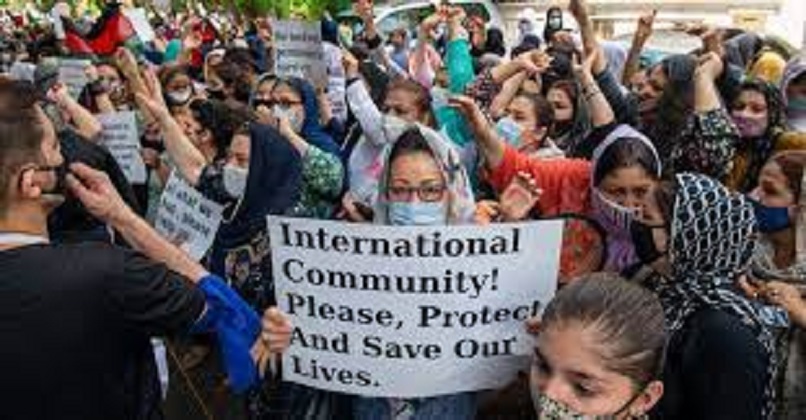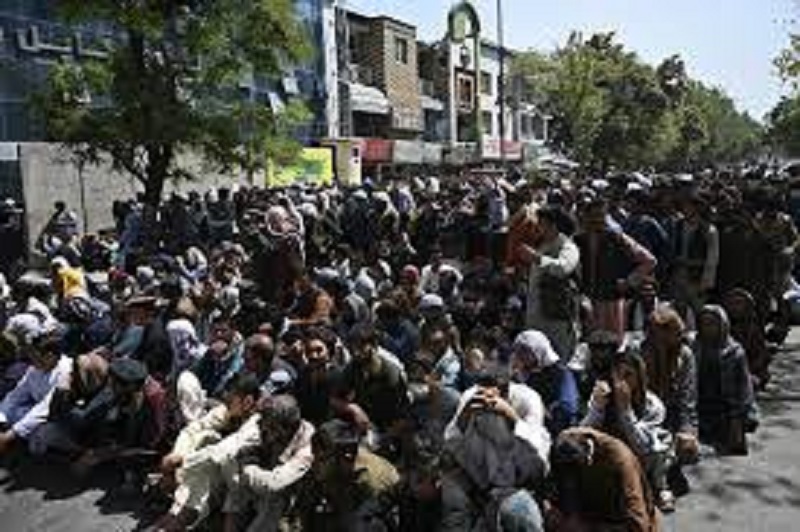
Afghanistan under the Taliban rule is facing a tough going due to lack of funds to run the country as the lavish foreign economic assistance the previous democratic governments enjoyed has almost dried up. The foreign countries are hesitant now as the Taliban are showing no sign of leaving its hardline path. A look at the country’s uncertain future under the Taliban.
Afghanistan should not fall into the hands of terrorists from within and outside and there is an emergency situation in the country arising from an economic collapse and a humanitarian crisis which needs to be addressed immediately. These are among the focal points of the recently held meeting ‘Delhi Regional Security Dialogue on Afghanistan’ of the National Security Advisors of the region led by India in New Delhi.

The representatives of India, Iran, Russia, Kazakhstan, Kyrgyzstan, Tajikistan, Turkmenistan and Uzbekistan reiterated their stand on the Taliban government in Afghanistan. They stressed on the wide- spread poverty, unemployment, women’s rights, their empowerment through education, their active participation in social and political life, children’s education, participation of ethnic minorities in the government, drug trafficking, refugee crisis and economic as well as social development.
Afghanistan has been relying on financial aid from Western countries as its resources dried up due to decades-long insurgency and war on terrorism. Economic collapse and poverty in the country are a consequence of the stoppage of development aid from Western countries and freezing of Afghan money abroad after the Taliban takeover in August. In fact, the Taliban government has been recognized by no one barring Pakistan, China and Qatar.

Most of the countries, including India, had warned that Afghanistan would face an economic crisis if foreign aid to the country stopped after the Taliban formed an interim government which was not acceptable to the world nations. They were apprehensive that such a crisis would impact every sphere of people’s lives, including food
availability and healthcare of the poor. Alongside the crisis, the Islamic State militants have ramped up attacks, killing scores of people.
The democratic governments of Ashraf Ghani and Hamid Karzai had managed things to an extent amid the heightened insurgency and stepped-up anti-terrorism operations and ensured uninterrupted supply of food products and medicine with the help of friendly nations. India was a regular dispatcher of huge consignments of food products and medicine through land routes which have been blocked by Pakistan since the Taliban takeover. It’s a blatant attempt by Imran Khan’s government to curtail India’s involvement in the
Afghan affairs even though it is a humanitarian aid.
Also Read: Cinemas or OTT? Movie-goers to decide
The US withdrawal and the new government in Kabul of Pakistan’s choice have bolstered Islamabad for taking the decision against India. China also wanted to derail India’s sincere efforts in Afghanistan, which is to be seen as a part of its border dispute with India besides trade interests and regional superiority. China’s is a paradigm shift in its earlier Afghan policy that had opposed the Taliban and dubbed it a terrorist organization.

Neighbouring countries and the Central Asian nations are grievously concerned about the developments in Afghanistan because the spill- over as refugees and terrorists would disrupt internal security of these countries. They are also intensely worried over the cross- border drug trafficking which has been a menace for Iran, Tajikistan, Turkmenistan and Uzbekistan while Pakistan remains the principal transit route.
Drought in several provinces, approaching winter and no access to humanitarian assistance owing to militant activities make lives of millions of people extremely miserable. Proper shelter and clothes for millions need to be provided ahead of the months-long winter time. An increasing number of malnourished children and crippling
healthcare due to the lack of medicine and trained staff show the dangerous situation the Afghan society faces.

According to United Nations, Afghanistan is facing the worst humanitarian disaster the world has ever witnessed. Millions are facing starvation while nearly the entire population is on the verge of poverty, says UN. As per an estimate, around 23 million people are in a desperate need for food that means 97 percent of the 38 million
population are living on the brink of poverty. Therefore, the UN has called for immediate, unwavering support to the Afghan people. International funding is very necessary at this juncture to avert a humanitarian disaster of this magnitude and also to maintain lives and livelihood.
What caused the present crisis? Afghan Central Bank’s $10 billion were frozen abroad soon after the Taliban takeover so that it shouldn’t be availed by the new government. It led to the collapse of the public finances and banking system. Subsequently, employees did not receive their salaries while prices of essential commodities
and fuel soared. And inflation was all-time high. In the days after the transition, exports to the country were either cancelled or postponed as there was utter confusion over the nature of the Taliban government. Many countries snapped their trade and diplomatic relations with Afghanistan in protest.

Any solutions? A quick remedy for the crisis situation is to ease restrictions put in place by Western countries on the banking system in Afghanistan and the US should allow the flow of development aid to the country.
Meanwhile, the US, Russia, China and Pakistan held an emergency meeting in Islamabad in the backdrop of the alarming situation in Afghanistan. Called Troika Plus group, the meet urged the Taliban to work with people for an inclusive government that respects the rights of women and children. Representatives of the four nations
have warned of a dangerous situation following an economic collapse and a deepening humanitarian crisis in the war-torn nation.
By: KS Rajagopal

Post Your Comments